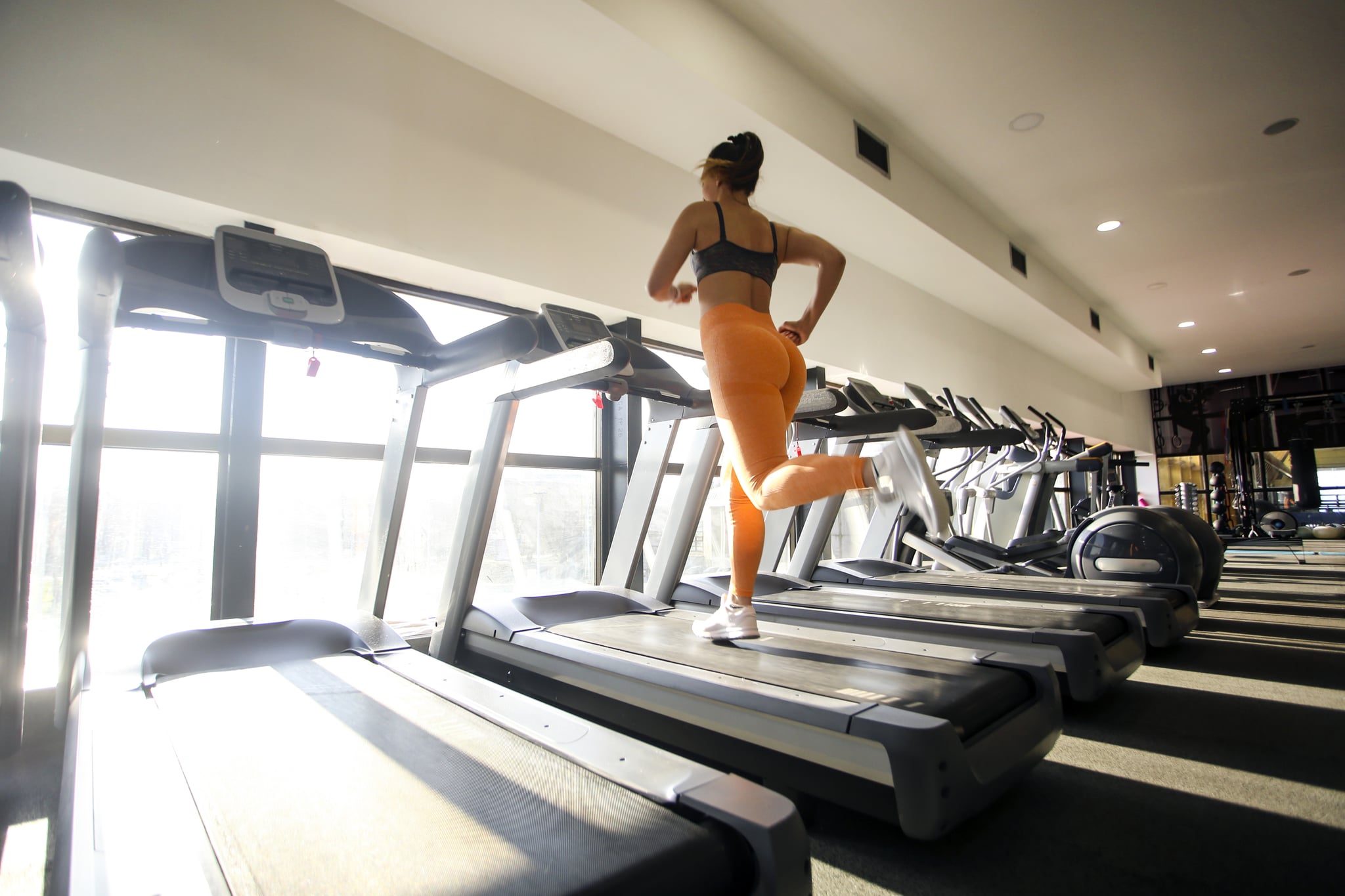Products You May Like
Image Source: Getty / GoodLifeStudio
When you’re running intervals, you can’t beat the precision and accuracy of a treadmill HIIT workout. If I plug seven miles an hour into the machine, I’m going to be running exactly seven miles an hour — otherwise, I’ll fall off the back. But during the same workout outdoors, I might overshoot the pace without even realizing it, or (more likely) ease off the gas as I get tired.
“The treadmill has an inability to lie to you,” says David Siik, founder of Precision Run at Equinox and author of “The Ultimate Treadmill Workout.” That’s why a high intensity interval training session on the treadmill is so powerful: You can’t fudge it. “The beautiful design of that machine is really built for intervals,” Siik says.
The Benefits of Treadmill HIIT Workouts
There are a few reasons why so many runners hit the ‘mill for HIIT sessions. Here are some of the biggest ones:
They’re super efficient
A HIIT workout can get you in and out of the gym quickly. “You do a lot of work in a short amount of time,” Siik says. In comparison to a moderate-effort run, research shows that intervals improve both your endurance and speed more efficiently.
You’ll stay engaged
If you jump on a treadmill without a plan, and just trudge it out for 30 minutes, boredom is pretty much inevitable (unless, of course, “Love Is Blind” is on, but I digress…). The time will fly by faster if you’re doing a treadmill HIIT workout because you’ll be breaking up the workout into short chunks by constantly changing the speed.
You’ll get a mood boost
Blissful running isn’t limited to outdoor routes with beautiful scenery. The challenge of doing a hard interval workout on a treadmill can release the chemicals responsible for that sought-after “runner’s high.”
Intervals can be adapted to any fitness level
You don’t need to be an advanced runner to do a treadmill HIIT workout. “Absolutely every single person who is able to run can benefit,” Siik says. Any speed can work during a treadmill HIIT workout; you just need to alternate between what feels hard and what feels like recovery for you.
What To Know Before Trying a Treadmill HIIT Workout
Keep in mind these two guidelines to get the most out of your treadmill intervals — and avoid injuring yourself.
Don’t jump off (or onto) a moving belt
You’ve probably seen people at the gym step onto the sides of a treadmill between intervals. But Siik strongly warns against this. Although it can be annoying to wait for the treadmill to speed up and slow down to the right pace, going from a dead stop to a sprint, or vice versa, is unnatural. “The human body is designed to accelerate and decelerate,” Siik says. More importantly, trying to step onto a quickly-moving treadmill is also a risky move that could send you to the ER. And why would you want to spend less time running, anyway? “If you’re going to spend 30 minutes doing a high-intensity running workout, don’t show up and try to find shortcuts,” Siik says.
Respect the recoveries
Treadmill HIIT workouts ask for high intensity, but also low intensity. Don’t overdo the recovery periods — if you don’t let your heart rate come down, you’ll make the next interval feel harder than it’s supposed to, or have to pull back on that top speed. Which means you’ll end up turning the session into a different kind of workout altogether.
What to Know About This 30-Minute Treadmill HIIT Workout
As a UESCA-certified running coach and someone who, to be honest, usually dreads the tread, this is my go-to 30-minute treadmill HIIT workout that makes me actually enjoy running indoors. After a warmup, the intervals progress from one to three minutes, then back down again, with two 30-second intervals at the end for a little extra spice. The pyramid-style format keeps things from getting repetitive by continually changing the length of the intervals — and therefore the challenge. And the last two quick reps offer one final chance to eke out whatever you’ve got left in the tank.
Keep the incline at 0.0 the entire time, since the focus here is on speed. The pace you choose is based on your rate of perceived exertion (RPE), on a scale of one to 10. For the warmup, cooldown, and recoveries, aim for about a three or four effort level — that could be an easy jog or a brisk walk. Most of the intervals are an eight or nine effort level, similar to your mile pace. The three-minute interval in the middle holds back just a tad so you’re hitting closer to a 5K speed, or a seven or eight effort level.
Things kick into high gear pretty quickly, so before you get on the treadmill, be sure to start with a few minutes of dynamic warm-up moves to activate your muscles and get the blood flowing: squats, lunges, high knees, butt kicks, calf raises, and hip circles. Then hop on, and have fun!
A 30-Minute Treadmill HIIT Workout
 Photo illustration by Keila Gonzalez
Photo illustration by Keila Gonzalez
Jennifer Heimlich is a writer and editor with more than 15 years of experience in fitness and wellness journalism. She previously worked as the senior fitness editor for Well+Good and the editor in chief of Dance Magazine. A UESCA-certified running coach, she’s written about running and fitness for publications like Shape, GQ, Runner’s World, and The Atlantic.
